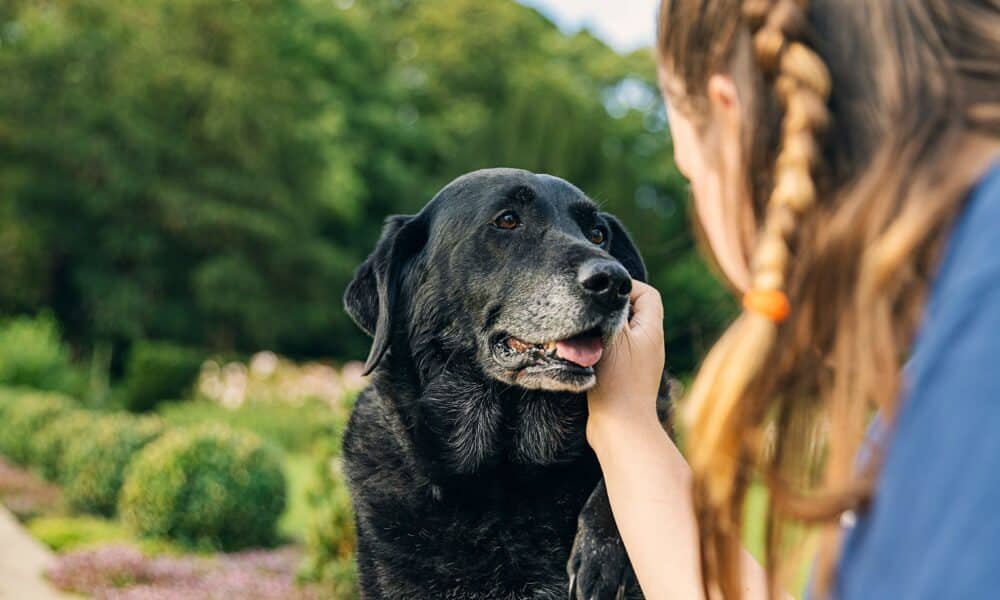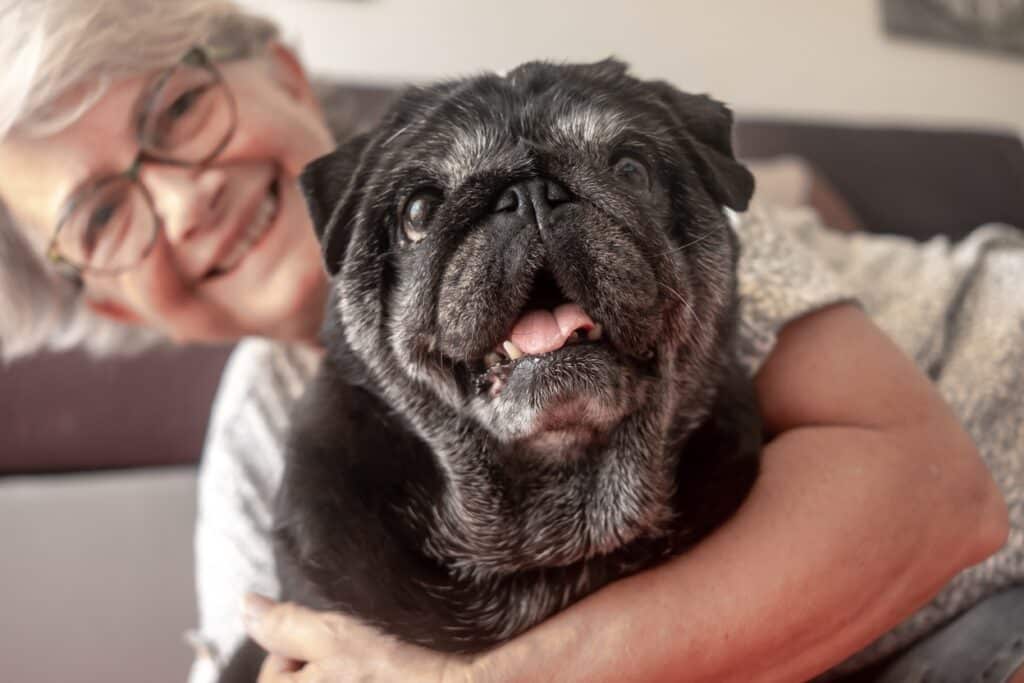Having a dog can bring immense joy into our lives, but it also comes with challenges. One of these challenges is the increased risk of health issues as our furry companions age.
Similar to humans, dogs can experience a condition known as Canine Cognitive Dysfunction (CCD), commonly referred to as dog dementia. As dogs grow older, their brains age, leading to changes in behavior and cognitive function. Dogs with CCD may display signs of absentmindedness and disorientation.
This article delves into dog dementia, exploring its development, symptoms, treatment options, and how to care for a dog affected by this condition.
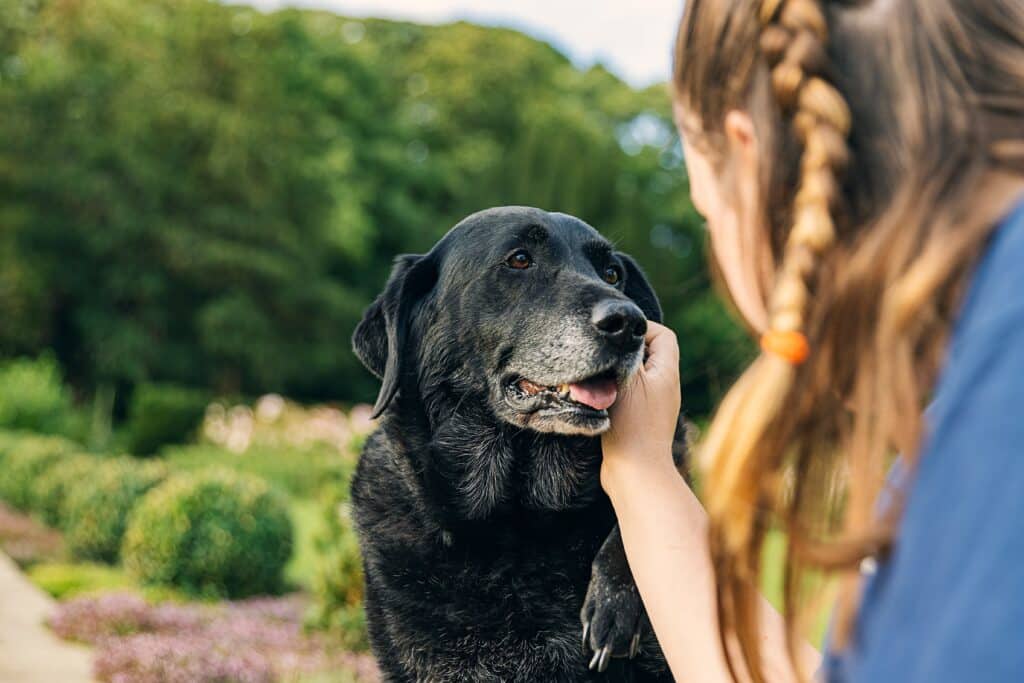

What Is Dog Dementia?
Dog dementia, or Canine Cognitive Dysfunction (CCD), is a cognitive disorder commonly found in senior dogs. It occurs when a dog’s brain ages, leading to changes in behavior and cognitive abilities such as memory and comprehension.
Dog dementia shares similarities with dementia in humans, with clinical signs of CCD present in approximately one in three dogs over the age of 11. By the age of 16, nearly all dogs will exhibit at least one symptom of this syndrome.
How Do Dogs Develop Dementia?
Dog dementia typically develops as a result of the aging process, where brain cells deteriorate over time, affecting a dog’s cognitive abilities.
In addition to aging, other factors such as genetics, brain tumors, or strokes can contribute to the development of dog dementia.
When Does Dementia Start To Happen In Dogs?
Dementia in dogs typically begins to manifest around the age of seven or eight, with approximately 35% of dogs over eight years old experiencing its onset. It is more common in senior dogs aged nine or older.
However, the onset of dog dementia can vary, as it can also be influenced by factors other than age.
Signs and Symptoms Of Dog Dementia
The symptoms of dog dementia can range from mild to severe, progressing as the disease advances over time.
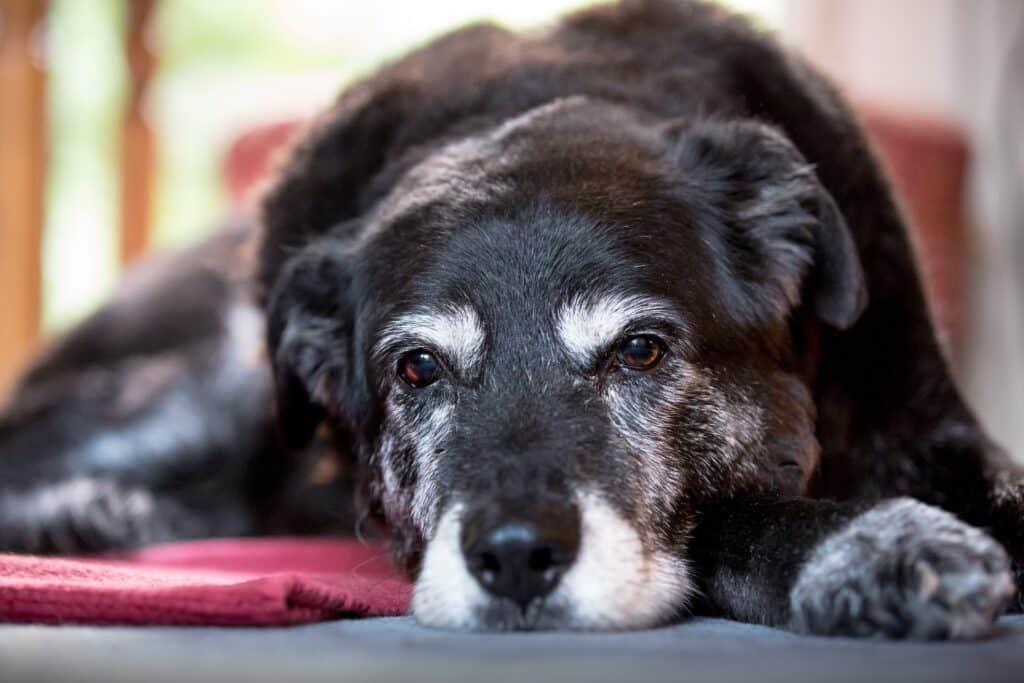

Common symptoms of dog dementia include:
- Disorientation and confusion
- Forgetfulness of familiar places, faces, and commands
- Anxiety
- Irritability
- Loss of appetite
- Wandering aimlessly
- Staring blankly
- Decreased interest in play
- Disregard for training and rules
- Difficulty learning new tasks
- Lack of self-grooming
- House soiling
- Sleep disturbances
Early detection of dog dementia is crucial, so it is important for owners of aging dogs to recognize these symptoms for timely intervention.
Treating Dog Dementia
While there is no permanent cure for dog dementia, treatment options are available to slow its progression and manage symptoms.
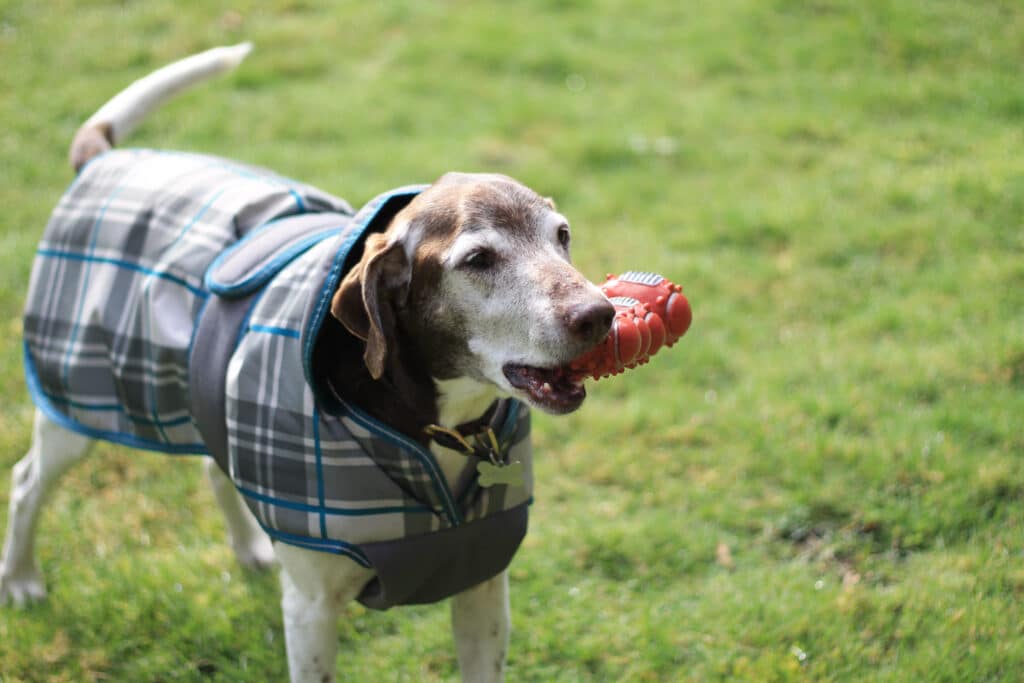

Treating canine cognitive dysfunction involves medication, support, and therapy to enhance brain function and slow cognitive decline.
Treatment options for dog dementia may include:
- Medication & Supplements: Certain medications and supplements can help slow the progression of dementia in dogs, tailored to the specific symptoms of each dog. Consulting a veterinarian is essential to determine the most suitable options.
- Dietary Changes: Adjusting a senior dog’s diet to include antioxidants, Omega-3 fatty acids, and essential vitamins can support cognitive function. This should be done under veterinary guidance.
- Life Enrichment: Establishing a routine, providing physical activity, and mental stimulation can benefit dogs with cognitive dysfunction.
- Behavioral Therapy: Therapy can help manage behavioral changes associated with cognitive dysfunction, reducing anxiety and improving quality of life.
The approach to treating dog dementia should be personalized based on the individual dog’s symptoms, emphasizing the importance of veterinary consultation before initiating any treatment.
How To Take Care Of A Dog With Dementia
While dog dementia cannot be fully prevented, there are several ways to support and care for a dog affected by this condition, both physically and emotionally.


Here are some ways to care for a dog with dementia:
- Install nightlights to aid your senior dog in navigating at night.
- Place potty pads near doors for easy access when you’re away for extended periods.
- Provide an orthopedic dog bed for comfort and support.
- Introduce changes gradually to their routine.
- Avoid situations that may cause stress or anxiety.
- Dementia-proof your home to prevent accidents.
- Offer love, patience, and support to help your dog cope with changes.
- Schedule regular vet check-ups to monitor overall health.

